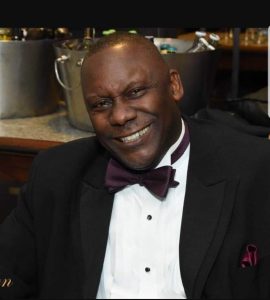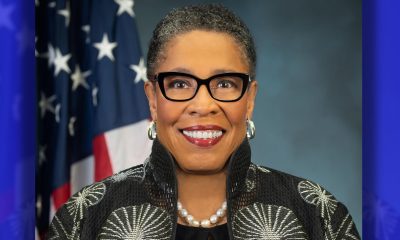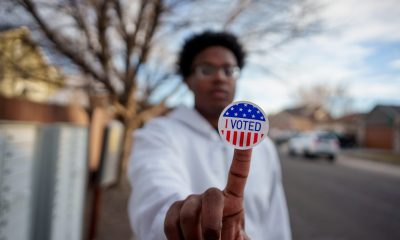Crime
Supreme Court Tosses Civil Case Against Cosby
NNPA NEWSWIRE — Kathrine McKee is a former L.A. morning talk show host who alleges Cosby raped her in 1974 in a Detroit hotel room while she was on tour with Sammy Davis Jr., her boyfriend at the time.
By Stacy M. Brown, NNPA Newswire Correspondent
@StacyBrownMedia
The U.S. Supreme Court on Tuesday declined review of a case brought by Bill Cosby accuser Kathrine McKee (McKee v. Cosby), who alleged being defamed when Cosby’s attorney characterized her story of being raped four decades ago as a fabricated lie.
In writing the concurring opinion for the court, Justice Clarence Thomas states, “We did not begin meddling in this area until 1964, nearly 175 years after the First Amendment was ratified. The States are perfectly capable of striking an acceptable balance between encouraging robust public discourse and providing a meaningful remedy for reputational harm. We should reconsider our jurisprudence in this area.”
The denial comes five months after the comedian was sentenced to three-to-10 years in prison for aggravated indecent assault.
Before finally weighing in on McKee’s case, the justices deferred consideration nearly a dozen times over the course of several months, a move the Hollywood Reporter speculated could have been the result of sensitivity surrounding the Capitol Hill confirmation fight over Brett Kavanaugh, who himself was accused of sexual misconduct.

Kathrine McKee and Sammy Davis Jr. on stage.
McKee is a former L.A. morning talk show host who alleges Cosby raped her in 1974 in a Detroit hotel room while she was on tour with Sammy Davis Jr., her boyfriend at the time.
Cosby has consistently denied all the allegations against him.
The question presented in McKee’s petition was “whether a victim of sexual misconduct who merely publicly states that she was victimized (i.e., #metoo) has thrust herself to the forefront of a public debate in an attempt to influence the outcome, thereby becoming a limited-purpose public figure who loses her right to recover for defamation absent a showing of actual malice by clear and convincing evidence.”
Cosby’s attorneys presented the question a little differently: “Whether an actress who uses her celebrity status to gain access to national media outlets in order to publicly accuse an international entertainer — already in the midst o a public controversy concerning allegations against him — of additional misconduct is a limited-purpose public figure for purposes of defamation analysis.”
In defamation law, plaintiffs must demonstrate actual malice on the part of public figure defendants in order to prevail in a defamation claim. The precedent was established under the 1964 New York Times Co. v. Sullivan decision and has been extended via several similar cases brought before the court during the intervening 55 years. Per Justice Thomas, “Like many plaintiffs subject to this ‘almost impossible’ standard, McKee was unable to make that showing.”
Applied here, that would mean the statement by Cosby’s ex-attorney Marty Singer, in response to press reports of the alleged rape of McKee by Cosby, was knowingly false or had recklessly disregarded the truth, according to the Hollywood Reporter.
“I agree with the Court’s decision not to take up that factbound question. I write to explain why, in an appropriate case, we should reconsider the precedents that require courts to ask it in the first place,” writes Thomas. “New York Times and the Court’s decisions extending it were policy-driven decisions masquerading as constitutional law. Instead of simply applying the First Amendment as it was understood by the people who ratified it, the Court fashioned its own ‘federal rule[s]’ by balancing the ‘competing values at stake in defamation suits.’”
In 2017, the First Circuit Court of Appeals ruled that McKee was a public figure and that she couldn’t demonstrate actual malice.
“I am grateful to the United States Supreme Court and to the federal courts in Massachusetts for upholding the law in this case. I thank each of the Justices for their ruling, which gives me renewed hope that the fair and impartial courts in this country will go on to deliver justice,” Cosby said in a statement released through his publicist on Tuesday.
“This is the very reason, why I, [Bill Cosby] have no remorse because I am innocent and will continue to channel the strength of the great political prisoners. Finally the truth is being allowed to be heard and read by the public,” Cosby said.
California Black Media
Commentary: Finding the Right Balance — Addressing Organized Retail Theft While Upholding Civil Liberties
Organized retail theft is a significant issue that impacts both consumers and businesses. While it is crucial to address theft and protect businesses from losses, we should also be mindful of safeguarding individuals’ constitutional rights, particularly the right to due process. AB 1990 by Assemblymember Wendy Carrillo, also known as the STOP Act, raises concerns about the balance between addressing theft effectively and ensuring civil liberties are upheld.
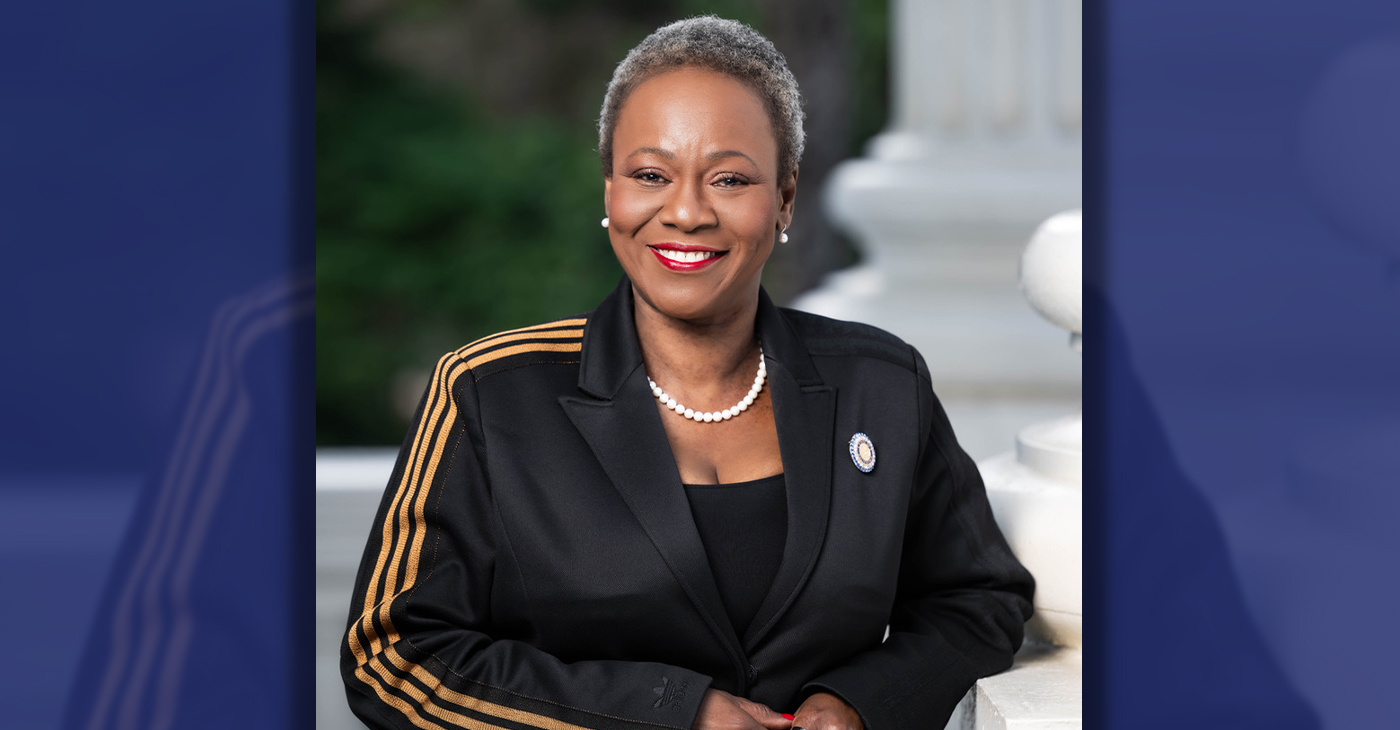
By Assemblymember Tina McKinnor | Special to California Black Media Partners
Organized retail theft is a significant issue that impacts both consumers and businesses. While it is crucial to address theft and protect businesses from losses, we should also be mindful of safeguarding individuals’ constitutional rights, particularly the right to due process.
AB 1990 by Assemblymember Wendy Carrillo, also known as the STOP Act, raises concerns about the balance between addressing theft effectively and ensuring civil liberties are upheld. This bill allows law enforcement officers to make warrantless arrests for shoplifting offenses not witnessed by the officer, as long as there is reasonable cause to believe the individual committed the crime. This bill has a dangerous potential for overreach and infringes on civil liberties, particularly the right to due process.
While the stated intention behind the STOP Act is to combat organized retail theft and protect businesses, there are valid concerns that this bill is an overreach and that existing law works, if properly enforced by our partners in law enforcement. A petty theft involving property stolen valued at $950 or less may be charged as a felony or misdemeanor (called a wobbler) if the offender has the following prior convictions: 1) at least on prior petty or theft-related conviction for which a term of imprisonment was served, and 2) a prior conviction for a serious or violent offense, for any registerable sex offense, or for embezzlement from a dependent adult or anyone over the age of 65. A misdemeanor can result in a sentence of up to one year in jail, whereas a felon can mean incarceration for 16 months, two years or three years. Let’s look at shoplifting in California. It occurs when a suspect enters a store, while that establishment is open, intending to steal property worth less than $950. The crime is considered a misdemeanor, punishable by up to six months in the county jail.
Granting officers the authority to arrest individuals based on reasonable cause, without witnessing the crime firsthand, can lead to negative consequences and possible violations of individual rights. Probable cause is the legal standard by which police authorities have reason to obtain a warrant for the arrest of a suspected criminal and for the courts to issue a search warrant. A grand jury uses the probable cause standard to determine whether or not to issue a criminal indictment. The principle behind the probable cause standard is to limit the power of authorities to conduct unlawful search and seizure of a person or its property, and to promote formal, forensic procedures for gathering lawful evidence for the prosecution of the arrested criminal. Reasonable cause does not require any of this due process and only requires that an officer reasonably believes that a crime has been committed. It is essential to find a middle ground that effectively addresses organized retail theft without compromising the fundamental rights of individuals.
California’s current laws, including the use of witness statements and surveillance evidence are sufficient for addressing suspected shoplifting and organized retail theft. California Attorney General Rob Bonta recently prosecuted Michelle Mack, a suspected organized smash and grab ringleader who paid twelve women to travel around California and commit over $8 million in retail theft at 21 different stores. AG Bonta used California’s current laws to have the suspect arrested and brought to justice.
The State of California is also making significant investments to address retail theft. Just this past year California invested an additional $267 million to combat organized retail theft. It has been less than a year and our law enforcement partners should have the opportunity to address this recent spike in retail theft crime.
Los Angeles County recently applied for and received a grant for the State of California for $15.6 million dollars to address retail theft enforcement. LA District Attorney George Gascon also recently formed an organized retail task force that partners with LA County Sheriff’s Department, Glendale, Beverly Hills, Burbank, Torrance and Santa Monica Police Departments to integrate their response to retail theft across the region. These collaborative efforts, such as those seen in initiatives like the organized retail task force in LA County, demonstrate the importance of a united approach to tackling theft while maintaining a balance between enforcement and civil liberties.
As we move forward, it is essential for policymakers, law enforcement agencies, businesses and communities to work together in finding solutions that effectively address organized retail theft without encroaching on individual rights. Ongoing evaluation and a commitment to thoughtful consideration will be crucial in navigating this challenge and fostering a safe and prosperous environment for all. Balancing the scales of justice to protect businesses while upholding civil liberties demands a comprehensive and conscientious approach from all stakeholders involved.
I am confident we can find that balance.
About the Author
Assemblymember Tina McKinnor (D-Inglewood) represents the 61st District in Los Angeles County, which includes parts of the South Bay, Inglewood, Hawthorne and Lawndale.
Activism
Oakland Post: Week of April 10 – 16, 2024
The printed Weekly Edition of the Oakland Post: Week of April 10 – 16, 2024

To enlarge your view of this issue, use the slider, magnifying glass icon or full page icon in the lower right corner of the browser window. ![]()
Activism
Oakland Post: Week of April 3 – 6, 2024
The printed Weekly Edition of the Oakland Post: Week of April 3 – 6, 2024
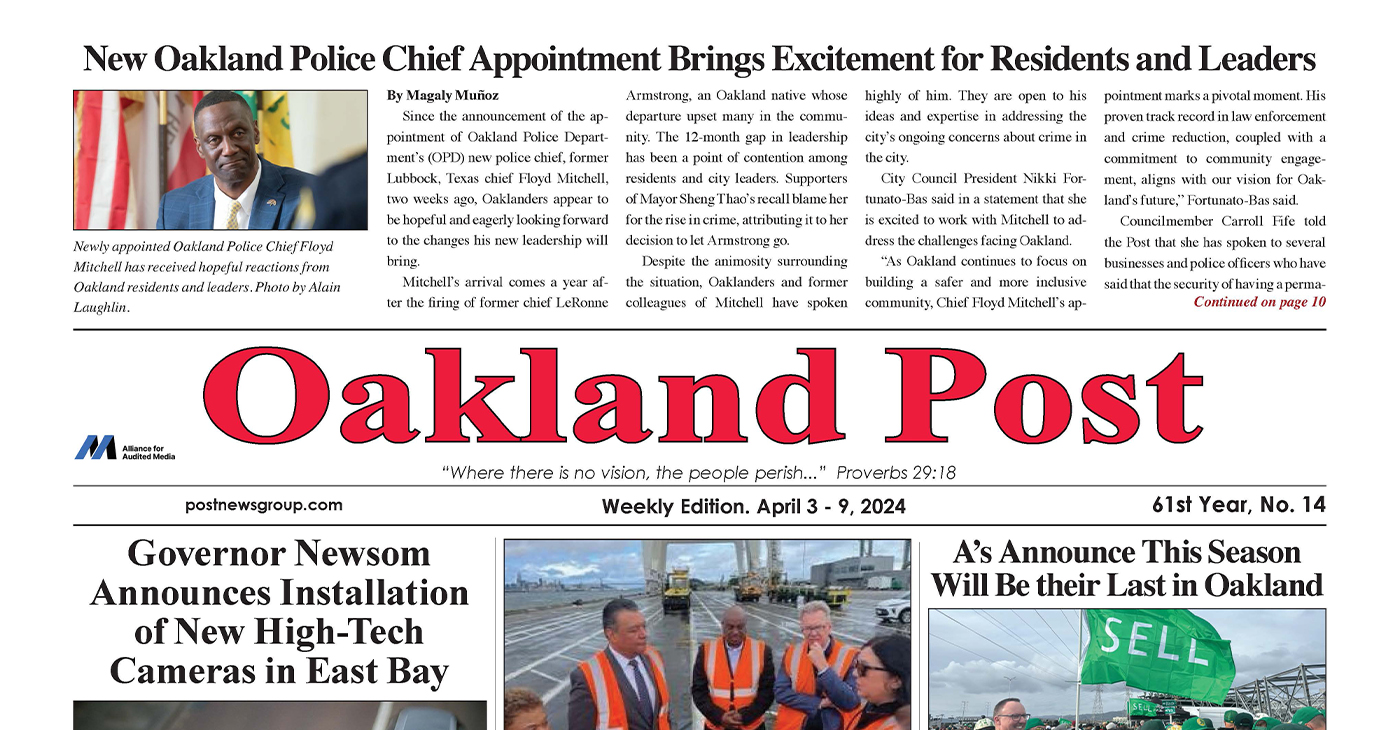
To enlarge your view of this issue, use the slider, magnifying glass icon or full page icon in the lower right corner of the browser window. ![]()
-

 Activism4 weeks ago
Activism4 weeks agoOakland Post: Week of March 20 – 26, 2024
-

 #NNPA BlackPress3 weeks ago
#NNPA BlackPress3 weeks agoCOMMENTARY: D.C. Crime Bill Fails to Address Root Causes of Violence and Incarceration
-

 #NNPA BlackPress3 weeks ago
#NNPA BlackPress3 weeks agoMayor, City Council President React to May 31 Closing of Birmingham-Southern College
-

 #NNPA BlackPress3 weeks ago
#NNPA BlackPress3 weeks agoFrom Raids to Revelations: The Dark Turn in Sean ‘Diddy’ Combs’ Saga
-

 #NNPA BlackPress3 weeks ago
#NNPA BlackPress3 weeks agoCOMMENTARY: Lady Day and The Lights!
-

 #NNPA BlackPress3 weeks ago
#NNPA BlackPress3 weeks agoBaltimore Key Bridge Catastrophe: A City’s Heartbreak and a Nation’s Alarm
-

 #NNPA BlackPress3 weeks ago
#NNPA BlackPress3 weeks agoBaltimore’s Key Bridge Struck by Ship, Collapses into Water
-

 Activism3 weeks ago
Activism3 weeks agoOakland Post: Week of March 27 – April 2, 2024

